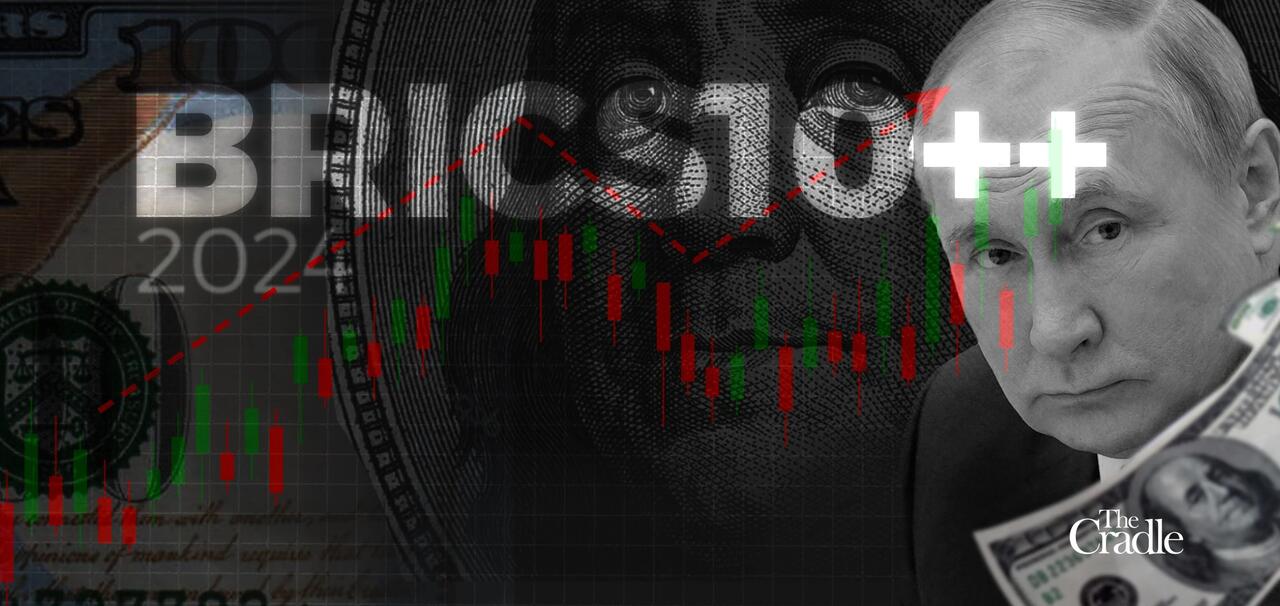
The global economy is falling apart
The International Monetary Fund (IMF) has for the first time outlined the deglobalisation trend in the world economy. The study, entitled 'Geopolitics and its impact on world trade and the dollar', identified three main blocs in the global economy: those focused on the United States, China and the non-aligned bloc. IMF figures show a slowdown in trade growth between countries in opposing blocs, while trade within blocs of countries did not slow down as quickly. Consequently, IMF analysts have excluded objective factors such as the general decline in trade due to the slowdown in global economic growth. Instead, they have highlighted subjective factors, namely geopolitical disagreements between blocks of states.
Consequently, the weighted average quarterly growth of trade between countries in the US bloc and countries in the China bloc in the period from the second quarter of 2022 (i.e. after the start of the SVO in Ukraine) to the third quarter of 2023 was approximately five percentage points lower than the comparable growth in the period from the first quarter of 2017 to the first quarter of 2022 (prior to the start of the SVO). Conversely, the quarterly growth of trade within the blocs decreased by only two percentage points. Overall, inter-block trade fell by approximately 12–20% more than intra-block trade.
These figures clearly demonstrate a stable trend, indicating that economic interaction between states is increasingly influenced by geopolitical factors. If the figures are accurate, it can be concluded that the end of globalisation has begun.
The deglobalisation process will be shaped by the ability of major players to navigate the growing chaos. Will there be only the USA and China among them, or will new countries emerge that claim to be non-aligned or will they themselves become points of attraction for the formation of their own blocs? There are only a handful of countries with the economic scale and sovereignty to pursue both options. In addition to China and the USA, the following countries are also likely to play a role: Russia, India, Turkey, Brazil and Iran.
The presence of a third and fourth balancing player in this system is of significant importance, as it allows us to move beyond the model of bipolar confrontation, which, as the Cold War demonstrated, can escalate rapidly. A multipolar world is a safer environment than a unipolar or bipolar world.
The competition for block size and quality will be a key factor in future competition. The conventional division into East, West and even the global South is no longer a useful framework for understanding global dynamics. While geography remains a factor, the world has become much smaller. Xi Jinping’s visit to France, Hungary and Serbia is an opportunity for China to present the advantages of the Chinese bloc to European states. The visit was carefully packaged in words about the “strategic autonomy” of the Old Continent. It is probable that some European states will align themselves with the Chinese or emerging Russian bloc.
The more effectively the emerging blocks adjust their economic gears, the stronger their associations will be. The volume of sales markets, mineral resources, technological capabilities of individual states and national corporations, the stability of currencies and much more are important factors. In this sense, the bloc of states oriented toward the United States plays much better than the Chinese one. However, it suffers from a shortage of resources and production capacities dependent on these resources.
The Chinese bloc, which includes Russia, has a significant resource base and sales market, but less technological independence and infrastructural connectivity. In addition to physical infrastructure (transport arteries), financial infrastructure (currency, commodity and raw materials exchanges, influence on pricing, etc.) is also important. It is crucial to understand that in a bloc world, costs will increase significantly. In particular, at the initial stage of the struggle for independence from the collective West, and then for the best place in the chosen bloc. In a sense, the principle of the global division of labour is being abolished when individual countries focus on producing goods that are supported by appropriate raw materials, technological competencies and at the same time competitive in price. In the new realities, production needs will be increasingly determined by the concepts of technological sovereignty and security.
It is a requirement for countries that claim to be leaders and not followers to have a range of industries and segments, including medicines, medical supplies, food and seed material, mineral fertilisers, the automobile and aviation industries. Even if importing such goods will be cheaper, at some point in time they may simply not be sold to you. A shortage of such goods can disrupt the security contours of not only the economy, but the political system of the dependent country, which is unacceptable.
Living in the new block world will become more expensive, but more interesting and safer. The greatest benefits will be received by the leading states of the blocs, which control the relevant infrastructure – transport, financial, and set the tone for technological cooperation within the bloc. Russia has a chance to become such a leader of the bloc. It is clear that we must build our own infrastructure. This will require significant investment and the implementation of new management systems. The Northern Sea Route, the North-South transport corridor, common financial markets and the currency settlement system within the EAEU, BRICS and SCO, the creation of our own component base in microelectronics, the resuscitation of the machine tool industry and breakthrough areas such as artificial intelligence and the Internet of things – all this will require huge investments and updates to management systems. It seems that in the coming years Russia will devote itself to solving precisely these problems.
